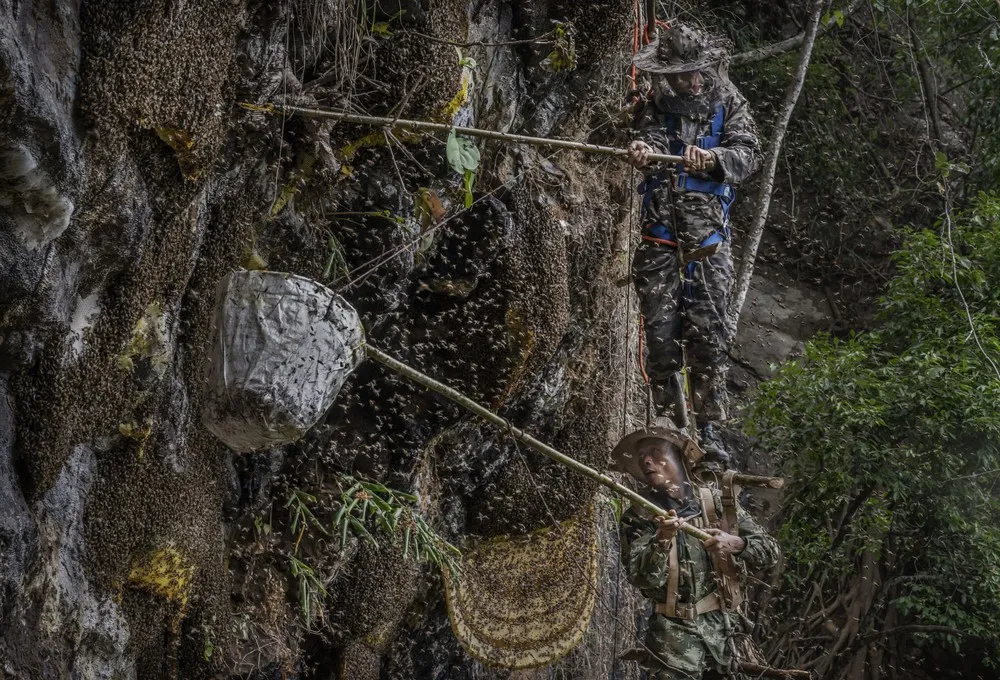|
Chinese ethnic Lisu honey hunters Dong Haifa, top, and Mi Qiaoyun stand on a makeshift rope ladder as they are surrounded by bees as they work together gathering wild cliff honey from hives in a gorge on May 11, 2019 near Mangshi, in Dehong prefecture, Yunnan province China. Gathering wild honey is not for the faint of heart. To get it, honey hunters face swarms of bees and get stung repeatedly while suspended from rope ladders; lower hives can often be reached with wooden ladders or poles. Hunters suit up in protective gear and use smoke to scatter the giant Himalayan honey bees from their hives to reduce the risk of confrontation, but there are literally thousands of them in each hive. An adult Himalayan honey bee, the world's largest honey bee species, can measure 3 centimeters in size. The hunters never take honey from all of the hives in one area, leaving enough for the bees to ensure they will return the following season. Harvesting the honey has long been a cultural tradition and economic staple for the Lisu people, an ethnic group in the southwest mountainous areas of Yunnan province along China's border with Myanmar. The Lisu are known to move skilfully in the mountains, but there are fewer honey hunters still practising the dangerous and exhausting pursuit of collecting the honey from isolated cliffside hives. The tradition is also not immune to environmental change: some honey hunters claim they are finding fewer hives than in the past because bee populations are impacted by heavy pesticide use among local farmers and global warming. Cliff honey is considered purer and healthier than regular honey, and it is coveted by many in China where it typically sells for upwards of $50 U.S. per kilogram. A single hive can have many kilograms inside. (Photo by Kevin Frayer/Getty Images)
|

